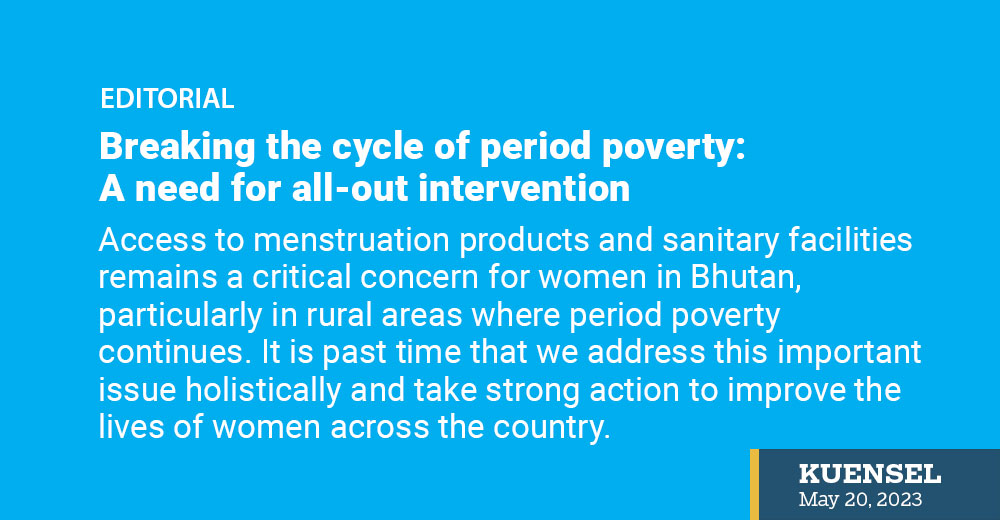Access to menstruation products and sanitary facilities remains a critical concern for women in Bhutan, particularly in rural areas where period poverty continues. It is past time that we address this important issue holistically and take strong action to improve the lives of women across the country.
Period poverty, defined as a lack of access to period products, hygiene facilities, waste management, and education, is hampered by a lack of thorough data and research, particularly in rural areas. The Journal of Global Health Reports emphasises the importance of additional research and analysis to address this pervasive issue.
The statistics paint a stark picture. According to the National Statistics Bureau’s Poverty Analysis report, around 12 out of every 100 Bhutanese people live below the poverty line. Rural areas bear an even heavier burden, with a poverty rate of 17.5 percent, compared to a relatively lower rate of 4.2 percent in urban areas. The cost of obtaining sanitary pads adds to rural women’s financial difficulties.
While the Bhutanese government has made some steps to address this issue, such as abolishing the 30 percent import fee on sanitary items in 2021, the affordability of sanitary pads remains a major concern. A recent research revealed that numerous shops in Punakha and Wangdue charge exorbitant costs for sanitary pads, worsening the problem for disadvantaged women.
Raising awareness through targeted programmes and educating women and girls on menstrual hygiene habits are critical measures in promoting good hygiene among women and girls. The Ministry of Education and Skills Development has also made laudable efforts to address the issue, providing free sanitary napkins in schools beginning in 2020, owing to collaborative collaborations with prestigious organisations such as JICA, UNICEF, and Save the Children. However, there is an urgent need to expand these efforts to reach primary schools in outlying locations where infrastructure and access are lacking.
Furthermore, the education ministry should create clean and accessible bathrooms in schools. Efforts to establish these facilities in SEN schools are already underway, with the World Bank supporting plans to build 20 SEN toilets.
As Bhutan prepares to observe Menstrual Hygiene Day on May 28, we must prioritise the needs of women and girls by addressing the core causes of period poverty. Access to affordable menstruation products, improved sanitary facilities, and comprehensive education are all critical measures in ensuring the well-being and empowerment of Bhutanese women.
Only by a determined and unrelenting effort by the government and proactive interventions by civil society can we achieve a much-needed, long-term change.


